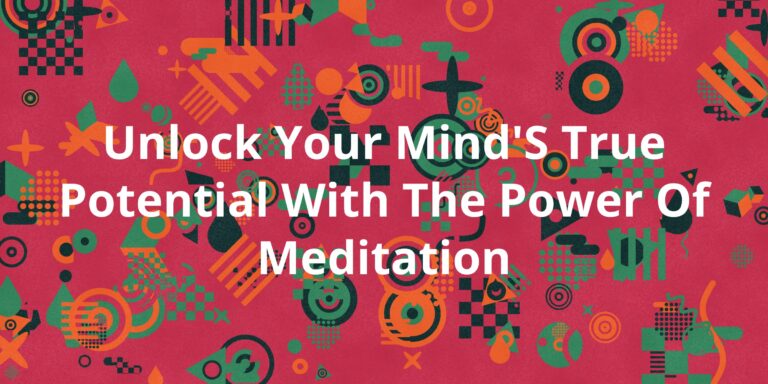Meditation has been practiced for thousands of years and is a powerful tool for unlocking our full potential and achieving inner peace. In this article, we will explore the benefits of meditation and how to incorporate it into your daily routine to help you mastery and bliss.
The Benefits of Meditation
Meditation has numerous benefits that can improve both your physical and mental health. Some of these benefits include:
1. Reduced stress and anxiety: Regular meditation practice helps to reduce the levels of cortisol, a hormone associated with stress, in the body. This can lead to lower feelings of anxiety and improved overall well-being.
2. Improved focus and concentration: Meditation can help to improve your ability to concentrate and stay focused on tasks. This is because meditation helps to clear the mind and reduce distractions.
3. Increased self-awareness: Meditation can help you to gain a deeper understanding of yourself and your thoughts and emotions. This increased self-awareness can lead to greater personal growth and development.
4. Enhanced creativity: Meditation can help to unlock your creative potential by allowing you to access new insights and perspectives.
5. Improved physical health: Regular meditation practice has been shown to improve cardiovascular health, lower blood pressure, and reduce chronic pain.
How to Incorporate Meditation into Your Daily Routine
Incorporating meditation into your daily routine can be as simple as setting aside a few minutes each day to focus on your breath and clear your mind. Here are some tips for incorporating meditation into your daily routine:
1. Choose a quiet, comfortable place to sit or lie down where you will not be disturbed.
2. Set a timer for the length of time you want to meditate for, starting with just 5-10 minutes per day and gradually increasing as you become more comfortable with the practice.
3. Close your eyes and take a few deep breaths, inhaling deeply through your nose and exhaling slowly through your mouth.
4. Focus your attention on your breath, noticing the sensation of air entering and leaving your nostrils.
5. If your mind wanders, gently redirect your attention back to your breath.
6. Continue to focus on your breath for the duration of your meditation session.
7. When you are finished, slowly open your eyes and take a moment to reflect on your experience.
Over time, as you continue to practice meditation regularly, you will begin to notice changes in yourself and your life. You may find that you become more calm and centered, have greater clarity of thought, and feel more connected to the world around you.
Conclusion
Meditation is a powerful tool for unlocking our full potential and achieving inner peace. By incorporating meditation into your daily routine, you can improve both your physical and mental health and experience greater personal growth and development. So why not give it a try and see how it can transform your life?



